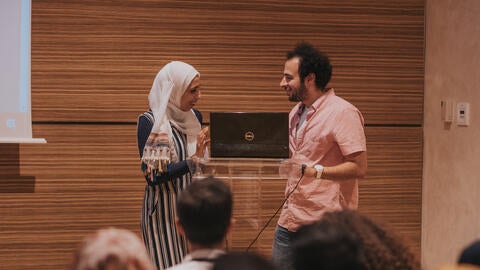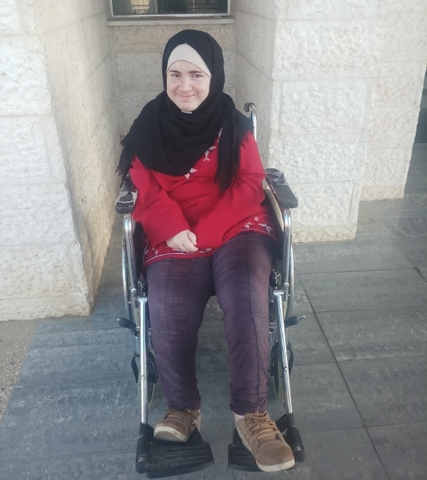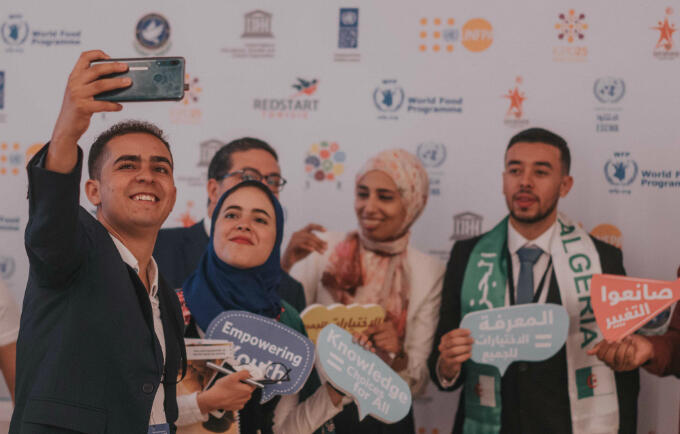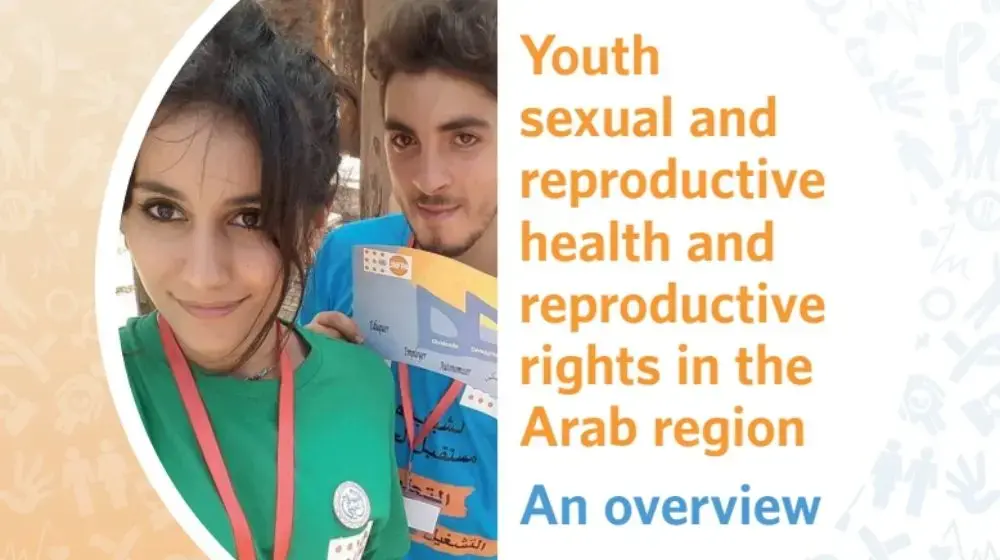The Arab states region is home to more than a 100 million young women and men under 30. The region’s ability to harness the full potential of this large youth population is hindered by unique challenges. These include high rates of poverty and unemployment, uneven access to healthcare and education, low rates of political participation and high levels of gender inequality. Moreover, the region is suffering from some of the world’s worst humanitarian disasters.
This year, UNFPA, the United Nations sexual and reproductive health agency, celebrates the 25th anniversary of the International Conference on Population and Development (ICPD) when world leaders came together and agreed to prioritize gender equality, youth empowerment and ensuring universal access to reproductive health as key preconditions of sustainable development. As part of the celebration, UNFPA, the United Nations reproductive health agency, is convening the second edition of the Youth Forum in the Arab Region this week under the banner of “knowledge at the service of the youth” in partnership with the Tunisian Ministry of Youth and Sports. The Forum brings together 160 young women and men from 20 Arab countries to work together on developing four regional projects to enhance youth’s access to knowledge and their ability to use this knowledge to achieve sustainable development and realize the promise of the ICPD programme of action for all.

© UNFPA_ASRO
The forum is designed as a space where young people lead the conversation and chart the way forward based on their own needs, priorities and their real life knowledge of their communities. The forum brings together participants with a high level of commitment and dedication to serving their communities through the use of knowledge to realize the promises of the ICPD in their countries, and to bring about peace and development in the region. Their individual stories and initiatives inspire hope and demonstrates their determination to overcome barriers, no matter how difficult, including conservative social norms, disability, or even wars. Below are examples of this year’s champions of knowledge:
Aya Seiam, 25, Egypt:
Aya is a member of the Y-Peer youth network, an old-time partner of UNFPA which supports young agents of change in their advocacy for gender equality and universal access to reproductive health; and their advocacy against social norms that lead to harmful practices such as child marriage and FGM.
“When I started organizing awareness raising sessions about issues of sexual and reproductive health, I thought these terms were strange and ‘improper’ by my community’s standards. But because of my work with Y-Peer and UNFPA, I resisted the stigma of impropriety by working to change the wrong ideas about harmful practices against girls in my community,” Aya said.
With the support of UNFPA and the Swedish Embassy, Aya coordinated a campaign for girls’ empowerment in 2017 that reached 16,000 people in 21 governortes to raise awareness against harmful practices such as child marriage and FGM.
Aya has also been active in different campaigns and education initiatives targeting young women and men in Egypt and within the community of Syrian refugees in the country.
Mohaned Agabeldour, 25, Sudan:
In 2016, Mohanad drafted a proposal to advance comprehensive sexual education in North Kordofan, Sudan. His proposal was endorsed and supported by UNFPA and, in partnership with UNICEF and the Sudanese Population Network (SPN), Mohanad led a pilot project in three high schools targeting students under 18 years of age. The project included establishing school clubs and training 30 students in each school using a specifically-designed reproductive health module suitable to the targeted age group.
“The biggest challenge facing youth in my country is that they are treated as an unwanted ‘enemy’ age group. This sidelines youth or pushes them towards conforming and denies them the opportunity to innovate and leave their own mark,” Mohanad said.
Mohamed Gaith Sandok, 25, Syria:
As a leader in the Y-Peer youth network, Mohamed launched the first interactive platform in Syria to raise awareness and provide knowledge about the issues of gender equality, sexual and reproductive health, gender-based violence, social stigmatization, and peacebuilding.
Simultaneously and to reach communities directly, Mohamed led a campaign in remote parts of the Syrian countryside with this knowledge through direct awareness sessions.
Most recently, Mohamed started an initiative under the title of “We’re your Eyes” which provides audio-based educational material in different school subjects for blind children using a mobile application.
“My dream is for quality education to one day be available for all for free and using modern and interactive methods. This will contribute to creating jobs and eventually eradicate poverty and hunger in the most under-privileged areas. It will also enhance tolerance and bring peace,” Mohamed said.

from Palestine, Gaza
Haneen Sha’at, 21, Palestine- Gaza:
Living with a disability and under a decade-old blockade which has effectively cut Gaza off from the rest of the world, Haneen committed herself to acquire knowledge and use it in the service of her community.
She graduated from college with an excellent score and sought additional courses and trainings to get as much education as she can. She then led several social development activities including an initiative to recycle plastic and cartoon waste, and an initiative to revive and maintain Palestinian heritage.
“ I dream of one day becoming Palestine’s goodwill ambassador at the UN and to serve youth, especially those with special needs because they represent a marginalized group. The biggest challenges in Gaza are the unemployment due to the blockade, and the high costs of living,” Haneen said.
Follow #YouthForumAr and #KnowledgeIsChoice on our Facebook and Twitter accounts to learn more about our participants and their inspiring contributions.



